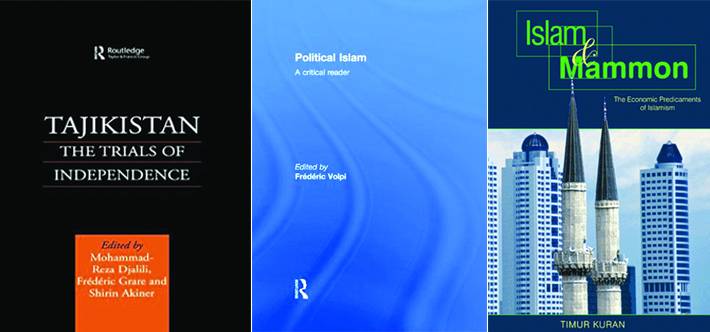
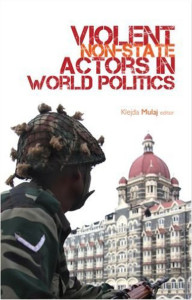
Violent Non-State Actors in World Politics
Edited by Klejda Mulaj
Hurst (hardcover), 2009
PRs 8,990
The 2008 attacks on Mumbai were allegedly carried out by the Lashkar-e-Tayyaba, termed a ‘non-state actor’ by former president,Asif Zardari. In most cases, violent non-state actors (VNSAs) rise as a state fails, resorting to organized attacks as a brutally effective method for advancing their political aims and other goals. Currently operating in Afghanistan, Lebanon, Somalia, and Sudan, VNSAs can take the form of national liberation movements confronting an occupying force; insurgents engaged in protracted political and military struggles that eat at the power and legitimacy of a ruling government; terrorists who use threats or violent acts to effect political change; irregular yet recognizable armed forces working within an ungoverned area or failing state; and mercenary militias, such as those used by Shell, or army-loaded units, such as those used in the Niger Delta. The essays in this volume map the relationship between VNSAs and the state, following the political, economic, and social processes that contribute to the emergence of these groups and how VNSAs in turn use these processes to trigger a crisis of the state. Contributors locate the point in which violence becomes desirable to the non-state actor and whether this alters the purpose of the relationship between VNSAs and the state, and they track the influence that the former can have in reshaping the governments they tear down. One of the first resources to describe these groups in full, this volume explains the internal structure of VNSAs, their recruitment strategies and leading ideologies, the characteristics and partnerships that allow them to adapt and prosper, and the fundamental similarities and differences between groups.
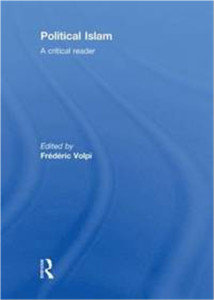 Political Islam: A Critical Reader
Political Islam: A Critical Reader
Edited by Frederic Volpi
Routledge (hardcover), 2011
PRs 15,300
As the topic of political Islam gains increased visibility in international politics and current affairs, it has become more difficult to navigate the vast literature that is devoted to explaining this phenomenon. This reader provides the student with an accessible and comprehensive introduction to the study of political Islam. Offering a clear route to the most influential literature in the field, the diverse range of viewpoints presented allows students to obtain a detailed, authoritative and critical perspective on the most pressing questions of the post-9/11 era.
With detailed introductory chapters and clear presentation of existing literature, thematically-arranged sections cover:
- modern understandings and explanations of Islamism
- the emergence and development of Islamist groups
- political responses to the phenomenon
- democracy and democratization
- multiculturalism
- political violence and terrorism
- globalization
- the future of political Islam.
This overview of political Islam will help students at all levels to appreciate its many manifestations and dimensions. A relevant text to introductory courses on history, international affairs, government and sociology, this reader is an essential tool for students of the Middle East, Muslim politics, religion in politics and Islamism.
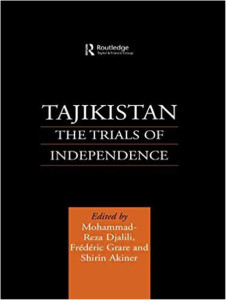
Tajikistan: The Trials of Independence
Edited by Mohammad-Reza Djalili, Frederic Grare and Shirin Akiner
Curzon (hardcover), 1998
PRs 7,200
Since its independence in 1991 Tajikistan has suffered a painful series of political crises followed by a civil war, still continuing, whose repercussions extend far beyond its borders. This work examines the causes of the turmoil, and analyses, through the case of Tajikistan, social and political dynamics at work throughout Central Asia. The book is the work of eleven Central Asian experts from different disciplinary backgrounds, and provides new insight into questions as varied as clan and local identity, the political construction of ethnicity and the role of peacekeeping forces.
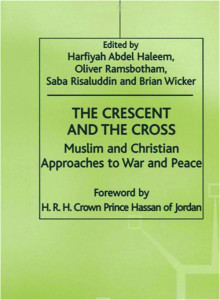
The Crescent and the Cross: Muslim and Christian Approaches to War and Peace
Edited by Harfiyah Abdel Haleem, Oliver Ramsbotham, Saba Risaluddin and Brian Wicker
Macmillan (hardcover), 1998
PRs 8,100
This book is the product of dialogue between a group of leading British Muslim and Christian scholars concerned about the alleged danger to the ‘West’ of Islamic ‘fundamentalism’. It analyses the ethical and legal principles, rooted in both traditions, underlying any use of armed force in the modern world. After chapters on the history, theology and laws of war as seen from both sides, the book applies its conclusions to (a) the 1990-91 Gulf War and (b) the Bosnian Conflict. It concludes that Huntington’s ‘Clash of Civilisations’ thesis is a dangerous myth.
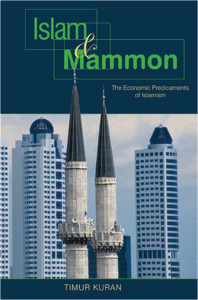
Islam and Mammon: The Economic Predicaments of Islamism
Timur Kuran
Princeton (hardcover), 2004
PRs 2,480
The doctrine of “Islamic economics” entered debates over the social role of Islam in the mid-twentieth century. Since then it has pursued the goal of restructuring economies according to perceived Islamic teachings. Beyond its most visible practical achievement—the establishment of Islamic banks meant to avoid interest—it has promoted Islamic norms of economic behavior and founded redistribution systems modeled after early Islamic fiscal practices.
In this bold and timely critique, Timur Kuran argues that the doctrine of Islamic economics is simplistic, incoherent, and largely irrelevant to present economic challenges. Observing that few Muslims take it seriously, he also finds that its practical applications have had no discernible effects on efficiency, growth, or poverty reduction. Why, then, has Islamic economics enjoyed any appeal at all? Kuran’s answer is that the real purpose of Islamic economics has not been economic improvement but cultivation of a distinct Islamic identity to resist cultural globalization.
The Islamic subeconomies that have sprung up across the Islamic world are commonly viewed as manifestations of Islamic economics. In reality, Kuran demonstrates, they emerged to meet the economic aspirations of socially marginalized groups. The Islamic enterprises that form these subeconomies provide advancement opportunities to the disadvantaged. By enhancing interpersonal trust, they also facilitate intragroup transactions.
These findings raise the question of whether there exist links between Islam and economic performance.
xploring these links in relation to the long-unsettled question of why the Islamic world became underdeveloped, Kuran identifies several pertinent social mechanisms, some beneficial to economic development, others harmful.

